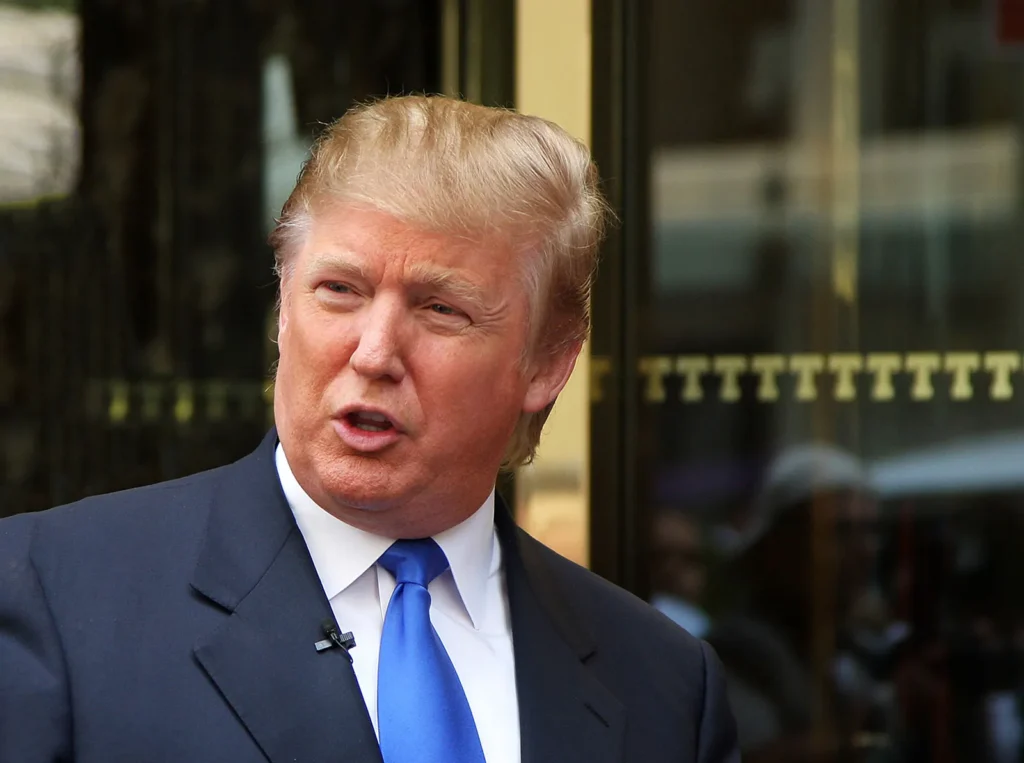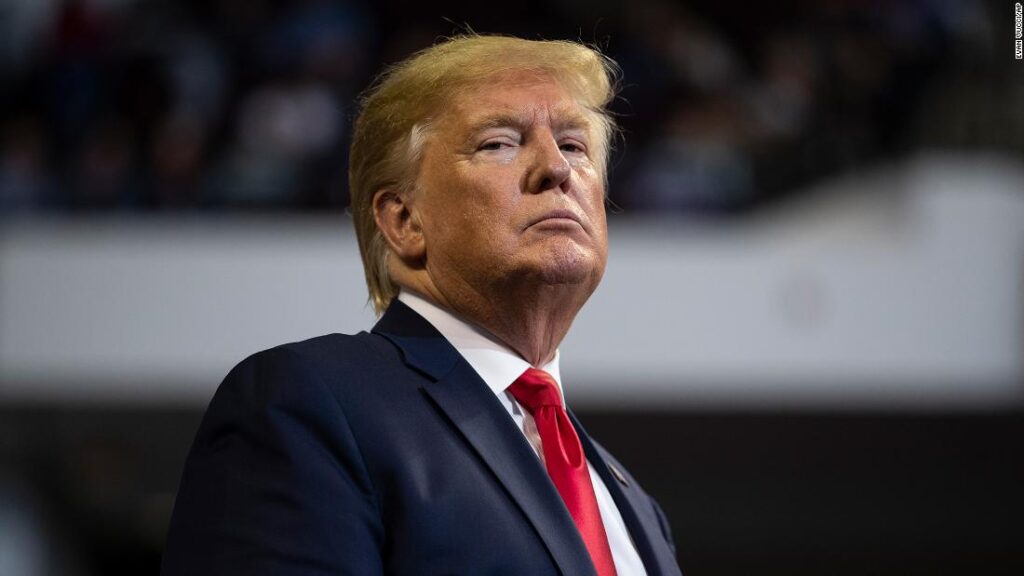Comparing Trump’s Presidency to Previous Administrations
Donald Trump’s presidency has evoked a wide range of opinions, discussions, and analyses. As one of the most controversial figures in recent American politics, Donald Trump represents a significant departure from previous administrations. His unorthodox style, policy decisions, and approach to governance have garnered a unique legacy that invites comparison with his predecessors. In this article, we will examine the various dimensions of Trump’s presidency juxtaposed against those who came before him.
Political Style and Communication
Donald Trump’s political style is marked by a distinct break from traditional norms. His preference for direct communication, notably through social media, sets him apart from past presidents. This section delves into how Trump’s communication strategies compare to those of earlier leaders, revealing insights into the changing landscape of political discourse in America.
>>> Buy now: Wanted Donald Trump For President 2024 Trump Mug Shot Tank Top T-Shirt
The Rise of Social Media as a Political Tool
Trump’s embrace of social media, particularly Twitter, transformed the way he communicated with the public. Unlike previous presidents who relied heavily on press conferences and formal communications, Trump used social media to bypass traditional media channels entirely.
This direct line to the populace allowed Trump to articulate his policies and viewpoints instantly, but it also led to significant backlash. His posts often sparked controversies that overshadowed substantive policy discussions. This dynamic introduces a new era of “political branding,” where personal image can be crafted and disseminated without the mediation of established news outlets.
The impact of this method cannot be overstated; it not only shifted the speed and nature of political communication but also contributed to an increasingly polarized political environment. While some appreciated his candidness, others viewed his style as unbecoming of a president, raising questions about the standards of presidential conduct moving forward.
Comparison with Previous Administrations
To understand the significance of Trump’s communication style, it’s essential to analyze how his predecessors approached political messaging. For instance, Barack Obama was known for his eloquent speeches and thoughtful engagement with the media, which sought to inspire hope and unity.
In contrast, Trump’s abrupt and sometimes inflammatory remarks often served to reinforce divisions rather than bridge them. Presidents like George W. Bush and Bill Clinton also maintained a certain decorum in their public addresses, focusing on bipartisanship and collective goals. Thus, Trump’s style can be seen as both a reflection of and a catalyst for the deepening ideological split within American society.
While Trump’s administration capitalized on the immediacy of digital platforms, it also raised critical questions regarding accountability, truthfulness, and the role of the media in democracy. This paradigm shift underscores how the styles of communication matter greatly in shaping public perception and trust in government.
Policy Decisions and Legislative Achievements
Another pivotal aspect of Donald Trump’s presidency is his policy agenda and legislative accomplishments. This section provides an insightful comparison of Trump’s major policy initiatives with those of other administrations, illuminating the broader implications for American governance.
Economic Policies: A Shift in Focus
One of the hallmark achievements of Trump’s presidency was his focus on economic growth through tax cuts and deregulation. The Tax Cuts and Jobs Act of 2017 exemplified his strategy to stimulate the economy by reducing corporate tax rates and incentivizing private investment.
Unlike previous administrations that emphasized comprehensive welfare reforms or progressive taxation, Trump leaned towards supply-side economics. This approach has roots in the Reagan era but diverged significantly in its execution and rhetoric. While proponents argue that such policies foster job creation and innovation, critics contend that they disproportionately benefit the wealthy and widen income inequality.
A closer examination reveals a duality in Trump’s economic policies; while unemployment dropped during his tenure, the benefits were unevenly distributed. The long-term effects of these policies also raise questions about fiscal responsibility and sustainability, especially in light of increasing national debt and the eventual economic downturn caused by the COVID-19 pandemic.
Foreign Policy: An Unconventional Approach
Trump’s foreign policy marked a stark departure from conventional diplomatic practices as he adopted an “America First” doctrine. This principle guided decisions such as withdrawing from international agreements like the Paris Climate Accord and the Iran Nuclear Deal, emphasizing a unilateral approach to global issues.
Previous administrations, whether Democratic or Republican, tended to prioritize multilateralism and alliances. For instance, Obama’s engagement with global partners aimed to strengthen collective efforts in addressing climate change and nuclear proliferation. Bush, too, focused on coalition-building post-9/11 despite criticisms of his unilateral actions in Iraq.
Trump’s transactional approach to diplomacy, characterized by summits with North Korean leader Kim Jong-un and warming relations with Russia, challenged long-standing diplomatic norms. Critics argue that such tactics undermined the U.S.’s credibility on the world stage, leading to increased tensions with traditional allies and adversaries alike.
Through this lens, Trump’s foreign policy elicits diverse perspectives on its efficacy and moral implications. While his supporters heralded the focus on American interests, detractors warned that such isolationist tendencies could diminish America’s global influence and leadership.
Health Care Reforms: A Controversial Landscape
Health care emerged as a contentious topic during Trump’s presidency, particularly regarding efforts to repeal and replace the Affordable Care Act (ACA). Unlike previous administrations that took steps toward expanding access to care, Trump’s administration concentrated on dismantling existing frameworks.
While George W. Bush championed Medicare Part D to expand prescription drug coverage, and Obama’s ACA aimed to increase insurance coverage through subsidies and mandates, Trump’s vision was markedly different. His attempts to repeal the ACA faced considerable pushback, illustrating the complexities of health care reform in America.
The struggle over health care accentuated the ideological chasm between Democrats and Republicans, with ongoing debates about public versus private solutions. Moreover, the COVID-19 pandemic necessitated rapid responses to health care delivery, further complicating the narrative surrounding Trump’s legacy in this domain.
Through a careful analysis of these policy dimensions, one begins to understand how Trump’s presidency not only contrasts with those of past leaders but also reflects deeper societal values and priorities.
Domestic Issues and Societal Impact
Examining domestic issues under Donald Trump’s administration reveals the interplay between policy decisions and their broader societal implications. This section addresses key areas such as immigration, race relations, and public safety, providing a comprehensive view of how Trump’s presidency influenced American life.
Immigration Policy: A Divisive Narrative
Immigration stood at the forefront of Trump’s domestic agenda, often characterized by strict enforcement measures and controversial rhetoric. The construction of the border wall and the implementation of travel bans showcased a decisive pivot toward a more restrictive immigration policy compared to previous administrations.
Obama, for example, pursued a more compassionate approach through Deferred Action for Childhood Arrivals (DACA), aiming to protect undocumented young people. In contrast, Trump’s stance fostered a climate of fear and uncertainty among immigrant communities, eliciting strong reactions across the political spectrum.
The rhetoric surrounding immigration during Trump’s tenure often invoked fears of crime and job competition, framing immigrants as threats to American security and culture. This narrative not only intensified partisan divides but also catalyzed grassroots movements advocating for immigrant rights and social justice.
Critically analyzing this issue reveals a complex tapestry of emotions, beliefs, and experiences that underpin immigration discourse in America. The challenge lies in reconciling national security concerns with humanitarian obligations, a task that remains unresolved as the country grapples with its identity in a globalized world.
Race Relations: A Flashpoint for Activism
Race relations became a crucial flashpoint during Trump’s presidency, amplified by events such as the Charlottesville rally and the Black Lives Matter movement. These incidents highlighted the enduring racial disparities and systemic injustices that persist in American society.
Previous administrations grappled with issues of race, yet Trump’s response often ignited further discord. His comments on racial violence were perceived as equivocal, prompting widespread criticism and mobilization among activists. The resurgence of social justice movements under his leadership reflects the pressing need for dialogue and systemic change.
The intersection of Trump’s policies and rhetoric with race relations raises important questions about leadership responsibilities and the power of language in shaping societal norms. As America confronts its history of racial inequity, the role of the presidency becomes pivotal in fostering unity or exacerbating division.
Public Safety and Law Enforcement: A Polarized Debate
The approach to law enforcement under Trump’s presidency has provoked intense debate, particularly amid nationwide protests calling for police reform. His administration’s emphasis on “law and order” clashed with calls for systemic change, creating a divisive atmosphere around public safety.
Past administrations confronted issues of policing and community relations, yet Trump’s reactionary posture complicated these dialogues. The dichotomy between calls for reform and assertions of support for law enforcement agencies illustrated a growing rift in public opinion on safety and justice.
This complex relationship between citizens and law enforcement embodies a broader cultural shift concerning accountability and the moral imperatives of governance. The pressing need for effective dialogue around these topics continues to shape the narrative surrounding public safety in contemporary America.
Legacy and Historical Perspective
As we reflect on Donald Trump’s presidency, it is essential to consider his legacy within the broader arc of American history. This section evaluates how historians may assess his impact and what lessons future leaders might glean from his administration.
Historic Comparisons: A Unique Place in Time
When historians look back on Trump’s presidency, they will likely draw parallels with figures like Andrew Johnson and Richard Nixon, who also faced profound tumult during their terms. However, Trump’s presidency stands out due to its unprecedented challenges and the manner in which it reshaped public discourse and party dynamics.
Johnson’s impeachment and Nixon’s Watergate scandal serve as historical touchstones for understanding the consequences of executive power gone awry. Trump’s impeachment—twice—demonstrates a modern iteration of these themes, reflecting ongoing struggles over accountability, ethics, and democratic norms.
Moreover, Trump’s presidency coincided with significant global developments, including rising nationalism and populism. This context raises questions about the viability of established democratic institutions and whether his approach presages long-lasting shifts in American governance.
The Role of Partisanship in Shaping Legacy
Partisanship has become a defining feature of Trump’s presidency, influencing perceptions of his legacy across party lines. Supporters view his policies as transformative, championing economic growth and national sovereignty. Conversely, opponents decry his actions as detrimental to democratic principles and social cohesion.
The polarization witnessed during his tenure has lasting implications for the future of American politics. Understanding these dynamics enables observers to anticipate potential paths forward, as the nation grapples with the enduring ramifications of divisive leadership.
Lessons for Future Leaders
As Trump’s presidency comes to a close, the lessons learned from his time in office will undoubtedly resonate with future leaders. Whether regarding communication strategies, policy formulation, or the handling of crises, Trump’s approach offers both cautionary tales and points of inspiration.
Future presidents may reflect on the importance of bridging divides and fostering collaboration across ideological boundaries. The experiences of Trump’s administration highlight the delicate balance required in leadership—navigating partisanship while striving for consensus and progress.
Ultimately, the historical assessment of Trump’s presidency will reflect broader societal values and aspirations, illustrating the intricate dance between leadership and the ever-changing American landscape.
In comparing Donald Trump’s presidency to those of his predecessors, we see a multifaceted picture emerge—one that encapsulates significant transformations in political communication, policymaking, and societal discourse. Trump’s unique style and approach underscore the evolving nature of American governance, presenting both challenges and opportunities for future leaders.
>>> Read more: Tactical analysis Argentina vs Bolivia Uncompromising war
As the nation moves forward, the lessons drawn from Trump’s time in office will continue to shape the political landscape. Whether viewed as a period of profound change or deep disruption, Trump’s presidency undeniably leaves an indelible mark on American history. The ongoing conversations surrounding his legacy will inform the trajectory of the nation as it strives for unity, justice, and progress in an increasingly complex world.


